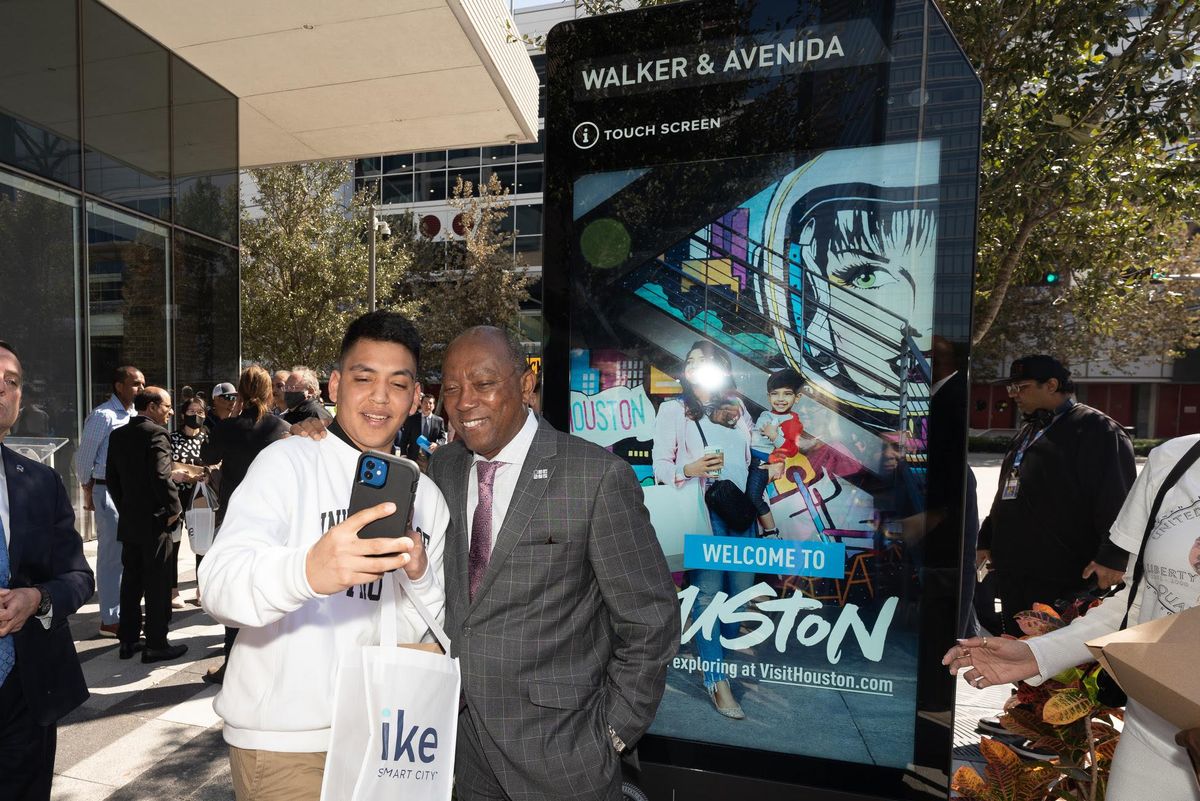Houston has what it takes to emerge as a smart city leader, expert says
Guest column
While Houston has long been known as the Energy Capital of the World, there’s no reason we, as a city, cannot hold more than one title. What if Houston could take on the title of Smartest City in the World?
There are many factors that create a smart city, and it is deeper than just implementing new smart technology – it is a city that better supports the lifestyles of its residents seamlessly and unobtrusively. To effectively understand what the needs of the community are and the right types of technologies to implement when urban planning, data collection and data security measures are vital.
The City of Houston has already begun to use data and emerging technology to improve the quality of life for citizens, share information with the public, drive economic growth, and build a more inclusive society. To be successful and provide enriching experiences for Houstonians, these updates must happen at the infrastructure level, working as an integrated system that can be continuously optimized.
In 2015, Houston adopted an Open Data policy to support data sharing efforts between the government, its citizens, businesses and researchers. In addition to this, our city has made strategic investments in artificial intelligence, the Cloud, the Edge, smart sensors, big data, and more. These investments are being bolstered by private companies and institutions, building on these technologies to tackle urban problems, identify better solutions and enact privacy protections. These companies, such as McCord, are helping execute the city’s vision around development, transportation, public safety and community engagement.Houston already has a case study
Citizens also play an active role in building the future of Houston through their behaviors and consumption patterns.
Take Generation Park, one of the largest privately held commercial developments in the country, sitting on 4,200 contiguous acres in Northeast Houston. As this land continues to be built out, developers at McCord partnered with Bosch technologies to implement sensors and other smart technologies to better understand how visitors are utilizing the trails, parking and space. These insights will then help McCord recognize parking patterns or which areas of the trails are most heavily trafficked, allowing the company to make more informed decisions regarding maintenance and infrastructure updates, ultimately providing a better experience for their visitors.
The data can also be factored in when planning events for the community. McCord will be able to use the data collected to determine things like the optimal times, preferred days and the need for parking at Redemption Square.
But the data use doesn’t stop at just events - tenants can use it to determine when to expect the dinner rush and apply that to staffing, prepping, happy hour specials and ultimately, factor it into better servicing their customers. Those living at Redemption Square’s 255 Assay Luxury Apartments will also benefit as McCord uses data trends to optimize their curbside management practices to better accommodate rideshare and food delivery services.
The plans for Redemption Square and Generation Park continue to adapt as data is collected and visitor behavior better understood. The goal of this data collection is to make Generation Park a citizen-optimized environment via cutting-edge technology where residents, visitors, employees, and businesses will thrive while knowing that their privacy is not at risk.
The bottom line
Houston’s diversity, business-friendly environment, and workforce make it a prime candidate to become a smart city. Becoming smarter in our transportation, public safety, sustainability practices, and infrastructure will create a better future for Houstonians.
Creating secure, holistic systems that work and learn together is central to successful smart city infrastructure. Private and public organizations must work together to collect data, pivot plans when needed and implement the correct technologies to ensure that these efforts ultimately make Houston a better place to live.
------
Ryan McCord is president of Houston-based McCord Development.

 The new IKE kiosks are touch screen. Photo courtesy of the city of Houston
The new IKE kiosks are touch screen. Photo courtesy of the city of Houston The first IKE kiosk was unveiled February 7. Photo courtesy of the city of Houston
The first IKE kiosk was unveiled February 7. Photo courtesy of the city of Houston Apple doubles down on Houston with new production facility, training center Photo courtesy Apple.
Apple doubles down on Houston with new production facility, training center Photo courtesy Apple.